Archive for the ‘synthesis’ Category
Sunday, February 6th, 2011
[ by Charles Cameron — cross-posted from Brainstormers on the Web ]

There are so many possible lessons to take here:
That a single image speaks louder than dozens of words. That we are more easily persuaded by images than by words. That FB and Twitter are clearly important to Egyptian youth. That dozens of words can convey nuances that a single image misses. That FB and Twitter were at best among the vehicles, rather than the drivers, of the events of January 25th.
That we’d do well to bear the Aristotelian distinction between material, formal, efficient and final causes in mind when talking about what “caused” or “becaused” those events – and elsewhere.
That the simple juxtaposition of two closely similar ideas can illuminate both, and perhaps create a spectral “third thing” which possesses the full detail of both with greater depth than either one in a single understanding, by a sort of stereo process not too different from stereoscopic vision or stereophonic sound.
That we live in exciting times…
Posted in analogy, analytic, arab world, Charles Cameron, cognition, complexity, computers, connectivity, culture, democracy, dictator, Epistemology, framing, free speech, freedom, innovation, insight, insurgency, islamic world, logic, media, meme, metacognition, Perception, propaganda, psychology, revolution, social science, symmetry, synthesis, Viral, wired | 2 Comments »
Friday, January 28th, 2011
[ by Charles Cameron ]
You know, I really enjoy building my DoubleQuotes. They can be entirely frivolous, as is this one, for instance:
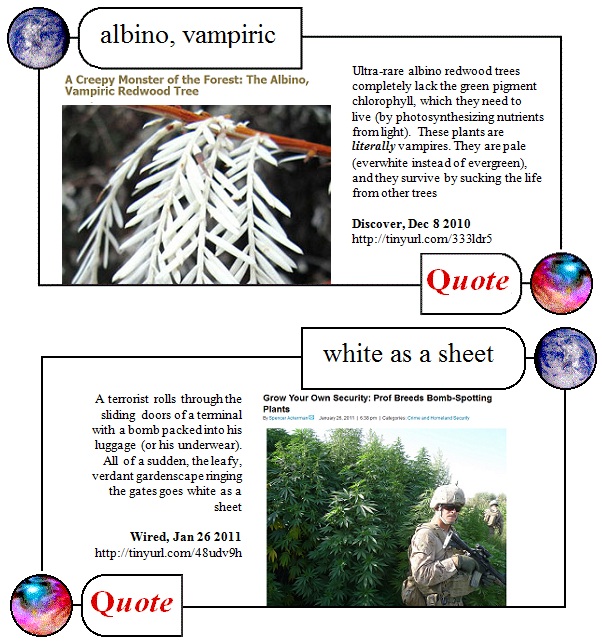
with its touch of gothic — a taste I share with my friend Bryan Alexander.
Or they can work like a Necker cube, offering opposite framings with which to view a single topic — in this case, video games.
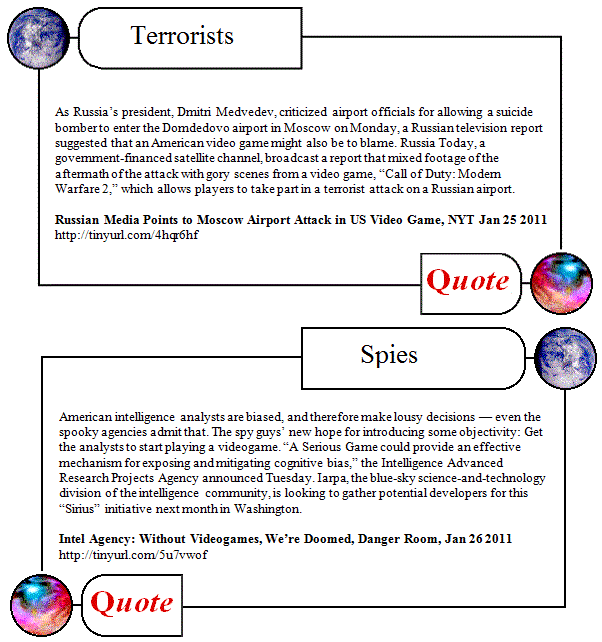
They can also work like Rorschach blots — this one compares two prophecies, one from the Quran and one from a contemporary Christian prophet (if I’m not mistaken, President Obama quoted him recently) —
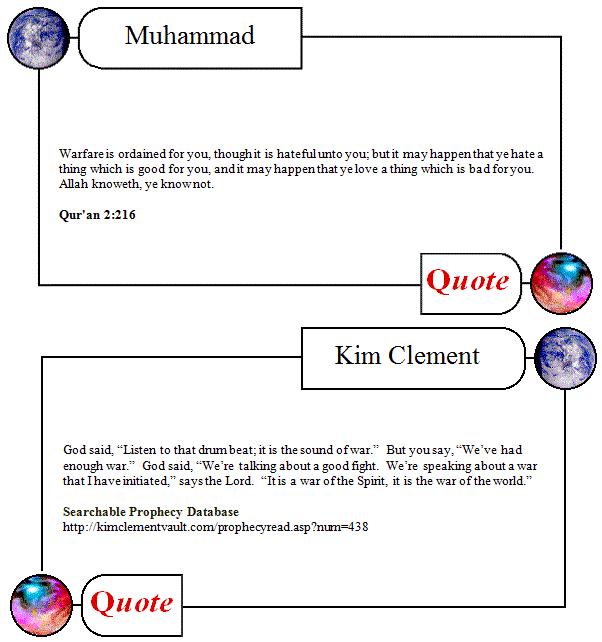
— but it is left up to the reader to determine the value of each…
And they can also pose fundamental questions of preference:
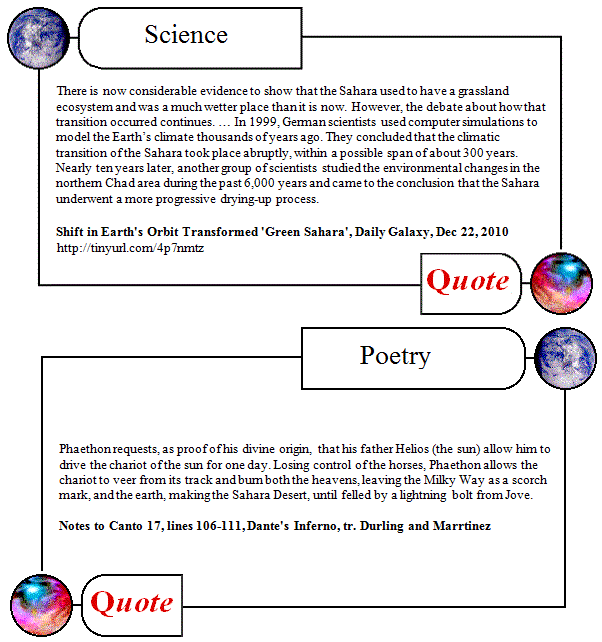
Has science simply replaced myth, d’you think? or is science for the facts, perhaps, and the mind — while poetry and myth are for the heart, and truth?
Posted in 21st century, analogy, analytic, arab world, barack obama, Charles Cameron, christianity, CIA, cognition, consilience, creativity, culture, Epistemology, extremists, fiction, framing, fun, Geography, horizontal thinking, humor, ideas, insight, intelligence, islamist, metacognition, myth, obama, Perception, philosophy, psychology, Questions, Religion, science, symmetry, synthesis, terrorism, Theology, thoughts illustrated, visualization | 10 Comments »
Friday, January 21st, 2011
[ by Charles Cameron ]
1.
I think of how the Mezquita, once a mosque, must have looked when its whole floor was a single, arched space of prayer:

before Moorish Cordoba was conquered, and the conquerors built a cathedral in the very heart of the place:
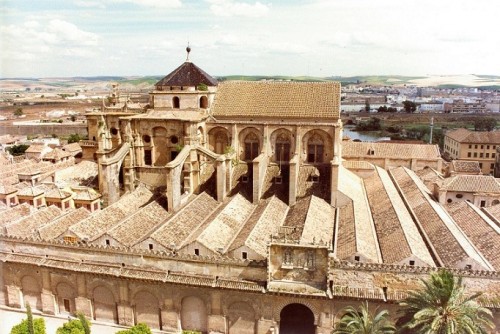
like the petals of a flower opening inside the sepals, or a cancer sprouting within the body – for so much depends on your understanding of prayer.
2.
And I think how lovely it still looks, cathedral nestled within mosque under the snow, to this photographer’s eye:
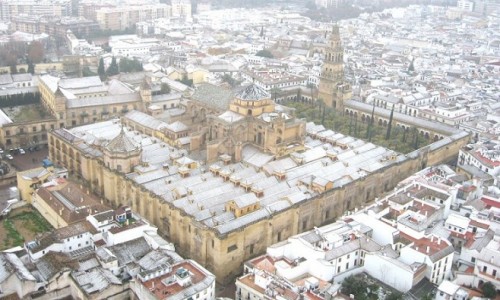
3.
And I think of Seymour Hersh, who has drawn flak for comments in a recent speech about the Bush war in Iraq, and Obama’s continuation of Bush policies – and here’s the part that caught my eye:
“In the Cheney shop, the attitude was, ‘What’s this? What are they all worried about, the politicians and the press, they’re all worried about some looting? … Don’t they get it? We’re gonna change mosques into cathedrals. And when we get all the oil, nobody’s gonna give a damn.'”
“That’s the attitude,” he continued. “We’re gonna change mosques into cathedrals. That’s an attitude that pervades, I’m here to say, a large percentage of the Joint Special Operations Command.”
And I think then of the great cathedral of Hagia Sophia in Constantinople, that was conquered and became a mosque:

and is now a museum. So these things go, in times of war.
4.
As for the Mezquita, its history is more complex than I have suggested: it was first a pagan temple, then a Christian church, then shared between Muslims and Christians, then made into a mosque, then a church again – and the cathedral as we see it today was built during the Renaissance…
And I think at last how much depends on lofty spaces, and on silence, and on prayer:
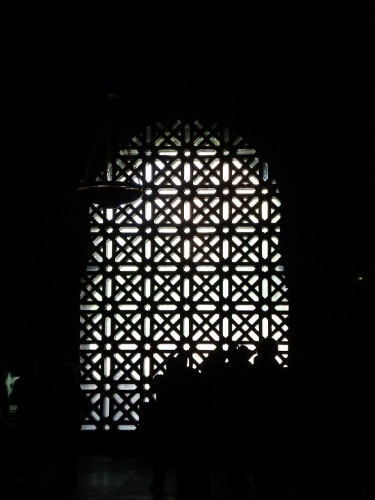
Posted in arab world, art history, byzantium, christianity, culture, framing, history, islamic world, Perception, psychology, Religion, synthesis, Theology, turkey, war | Comments Off on I think of Cordoba
Wednesday, January 12th, 2011

Grand Strategies: Literature, Statecraft, and World Order by Charles Hill
by Charles Hill
Heard way too many good things about this book from regular commenters like Scott Shipman (read his review here) to ignore it. The blurbs on the dust jacket are from some genuine heavyweights (and provoked an amusing academic political tantrum masquerading as a review in FP.com from some minor departmental nemesis of Hill’s at Yale, where Hill is one of the founding lecturers of their Grand Strategy Program).
I will upjump this in my antilibrary queue to be read after I finish with Luttwak.
Posted in academia, authors, book, cultural intelligence, culture, diplomacy, diplomatic history, education, Epistemology, fiction, foreign policy, geopolitics, historiography, history, ideas, intellectuals, leadership, metacognition, myth, national security, philosophy, politics, public diplomacy, social science, society, strategy, Strategy and War, synthesis, teaching, theory | 5 Comments »
Tuesday, January 4th, 2011
[ by Charles Cameron ]
I for one am delighted to know that we can now play around with the iridology of the sciences, using the software available on the Science-Metrix Ontology Explorer site to view which fields have journals which cross-link to journals in other fields…
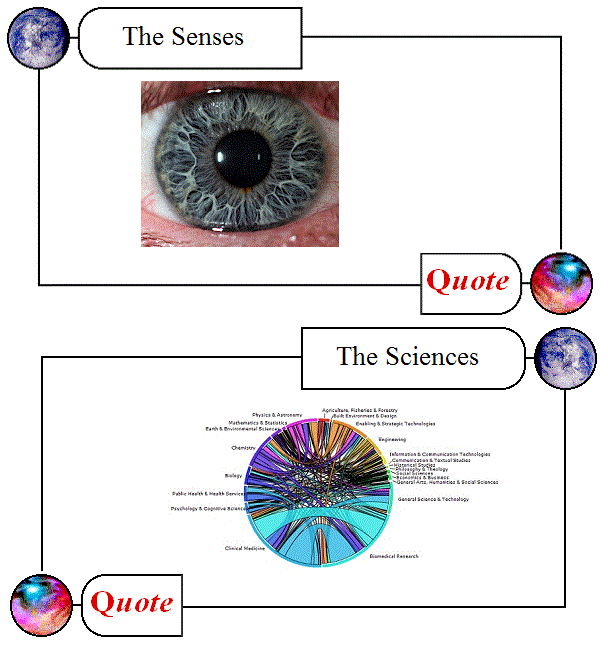
Seriously — that lower image is of the Field Citation Wheel that you can find, suitably enlarged for easy viewing, on that site.
*
And it’s heartening for me to know, for instance — taking a closer look at the segment of that image that’s roughly east north-east — that scientific journals do have some links on their pages to works of theology or philosophy:

Engineering, you’ll notice, has more links than history, philosophy, theology, the social sciences (even counting them twice), economics, business, the arts and humanities combined.
My own field, theology, has to share its thin segment with philosophy, and you can guess how small the number of links to articles on Islamic apocalyptic probably are…
Which is, in part, why I wonder whether a project like the ETH’s Living Earth Simulator will really manage to map such things as, well, a possible outbreak of global jihadist Mahdism and its consequences.
*
But then I look at another gorgeous graphic from the same source, focusing in on a part of the network of knowledge that interests me, and I can just faintly make out, lower left, entirely isolated, the field of music…

What splendid isolation! That’s all of Bach, mind you – and all the Beatles, too.
*
Seriously, though:
- It’s fascinating to be able to see how the various branches of knowledge cross-reference each other.
- Visual data representation is a gorgeous, fantastic, field.
- Mapping the all-of-everything is an irresistable lure for keen minds
- I’m betting the humanities will prove to be at least as good at it as the sciences.
- And I recall, not without a pang of regret, the time when my beloved Theology was Queen of the Sciences, and one might converse with Abelard on the streets of Paris…
Posted in academia, analogy, analytic, anthropology, art, brain, Charles Cameron, cognition, complexity, connectivity, consilience, cultural intelligence, economics, history, ideas, insight, map, metacognition, music, network theory, philosophy, psychology, rambling, science, social science, synthesis, Theology, theory, Uncategorized, visualization | Comments Off on An Iridology of the Sciences?
















